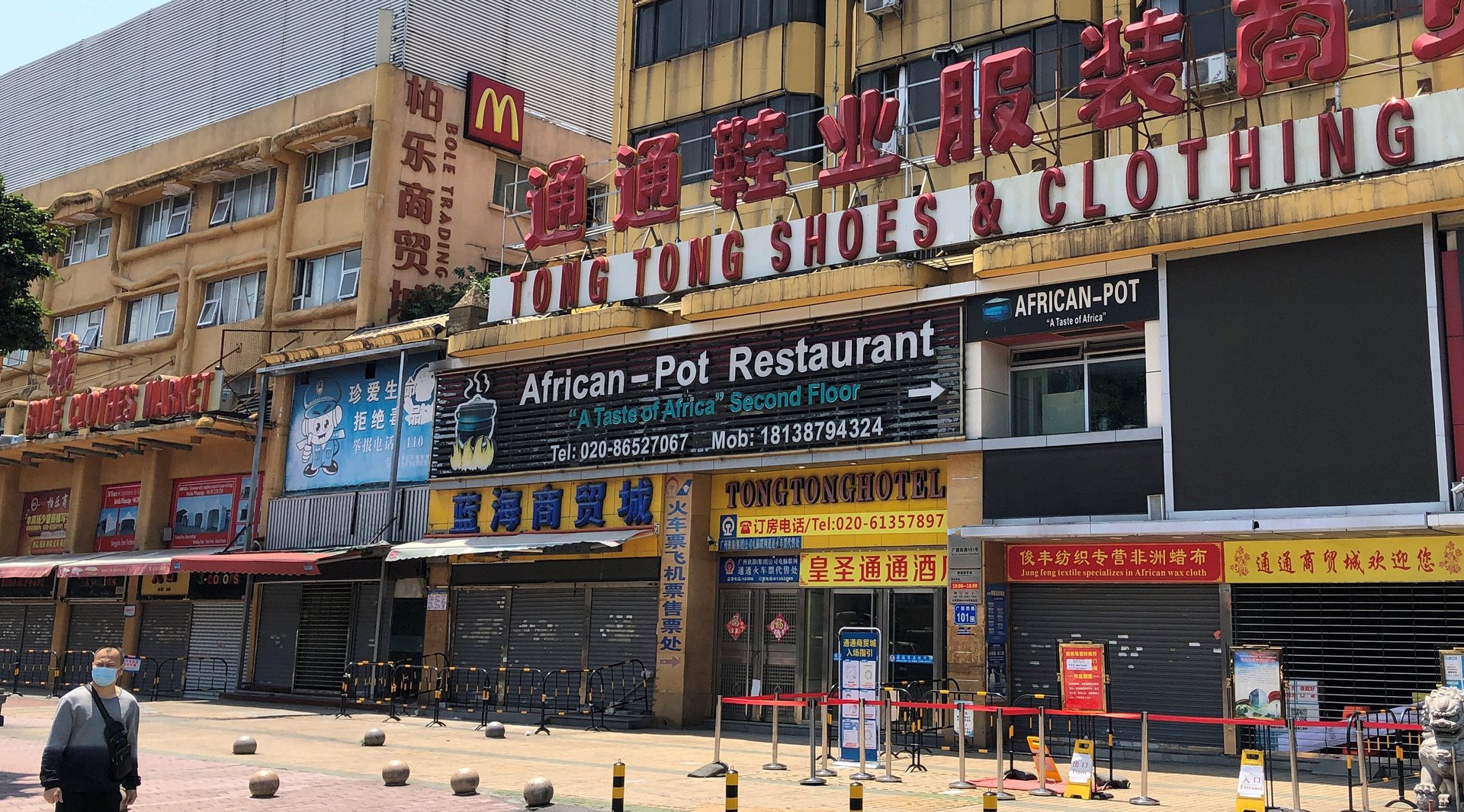After its racism to Africans goes global, a Chinese province is taking anti-discrimination measures
Officials in China’s Guangdong province have announced a raft of new measures aimed at combating a racial discrimination storm which has threatened Beijing’s relationship with African governments and Africans globally.


Officials in China’s Guangdong province have announced a raft of new measures aimed at combating a racial discrimination storm which has threatened Beijing’s relationship with African governments and Africans globally.
It comes after an unprecedented diplomatic scandal broke out because of the treatment of Africans resident in the province’s capital, Guangzhou. In April, videos and images of Africans being evicted from their apartments, forced into quarantine, blocked from hotels and even being barred from a local McDonald’s went viral on social media platforms including Twitter, Facebook and WhatsApp.
The recent wave of suspicion and anti-foreigner sentiment in the southern port city, which is a major hub for African entrepreneurs, was sparked by reports that a group of African men broke quarantine and infected others with the coronavirus.
Ghana, Kenya, Nigeria and Uganda were among African countries to summon China’s ambassadors, along with the African Union Commission, to register their displeasure about the reports privately and at times very publicly. The US State Department also ramped up the scrutiny of happenings in Guangzhou with a warning to African Americans to avoid travel to the city. The response from Beijing had initially been to deny the reports; describing them as “rumors” and “misunderstandings” spread by Western media, despite the fact local media in African countries were the first to report on the issue. However, with the new measures, China is effectively admitting there is a problem and clearly hoping to repair damage to its relationships with African countries.
A note published on Monday on the website of Chinese Embassy in Nigeria—relaying a message from Guangdong province officials – said: “We firmly oppose any discriminatory practice against specific individual or group, and allow zero tolerance for discriminatory remarks and deeds.” It also said the province was implementing “measures on ensuring equal services in nine sectors.”
The measures target businesses such as hotels, shopping malls, restaurants and other places where Africans have been routinely turned away, as well as residential compounds. Education, public transport and medical service providers are also included in the new regulations.
“Any organization or individual shall not restrict or refuse providing hotel accommodation and renting houses to any specific group of people because of their nationality, race, gender or skin color. Nor should they be denied free access to such public venues as local communities, shops and parks,” one of the new measures included in the note read.
A dedicated hotline has also been set up for foreign nationals who have concerns, however, it is unclear what kind of sanctions violators of the new measures would face.

Given the culture of local Chinese officials to closely follow guidance by their superiors, this change of emphasis to prevent racial discrimination will likely be enforced to some extent though it may take time to be effective.
But these measures have been late in coming as some African governments have escalated their actions beyond the initial condemnation of events. Last week, Nigeria’s House of Representatives unanimously passed a motion on the “Maltreatment & Institutional Racial Discrimination Against Nigerians Living in China by the Government of China.”
Among the reliefs being sought by legislators is to “redress in any local or international court for breach of fundamental rights, loss of property or any other actionable cause occasioned by [the] maltreatment [of Nigerians] in China.” It also includes a move to “check the validity of all immigration documents of every Chinese person in Nigeria.”
In Kenya, where a lawmaker has already warned of possible retribution, nearly 200 citizens have signed up for a repatriation flight from Guangzhou.
Sign up to the Quartz Africa Weekly Brief here for news and analysis on African business, tech and innovation in your inbox